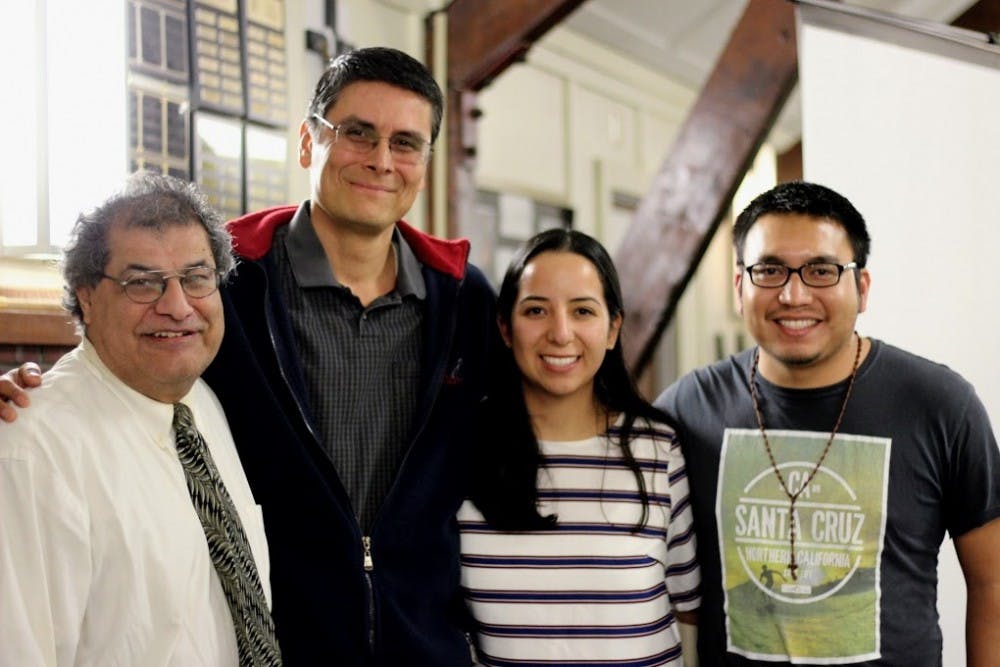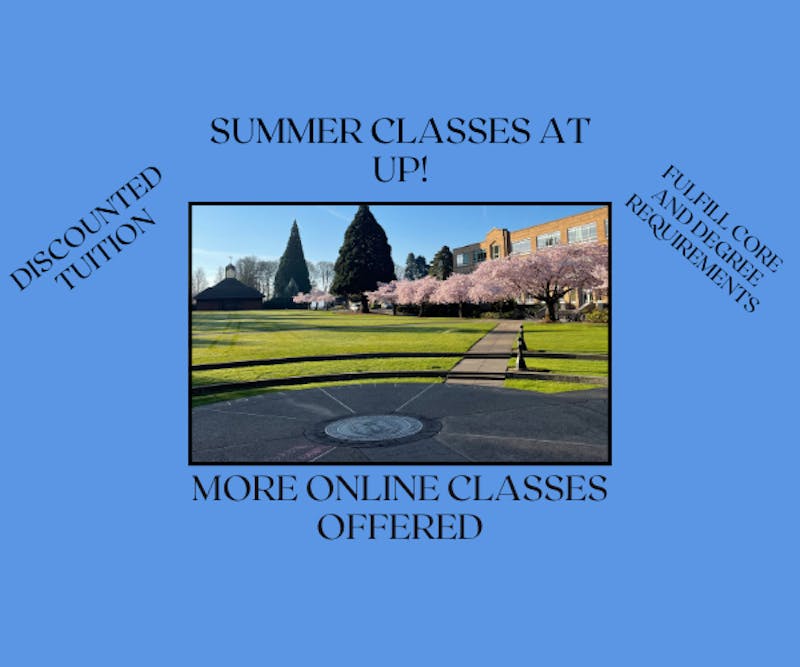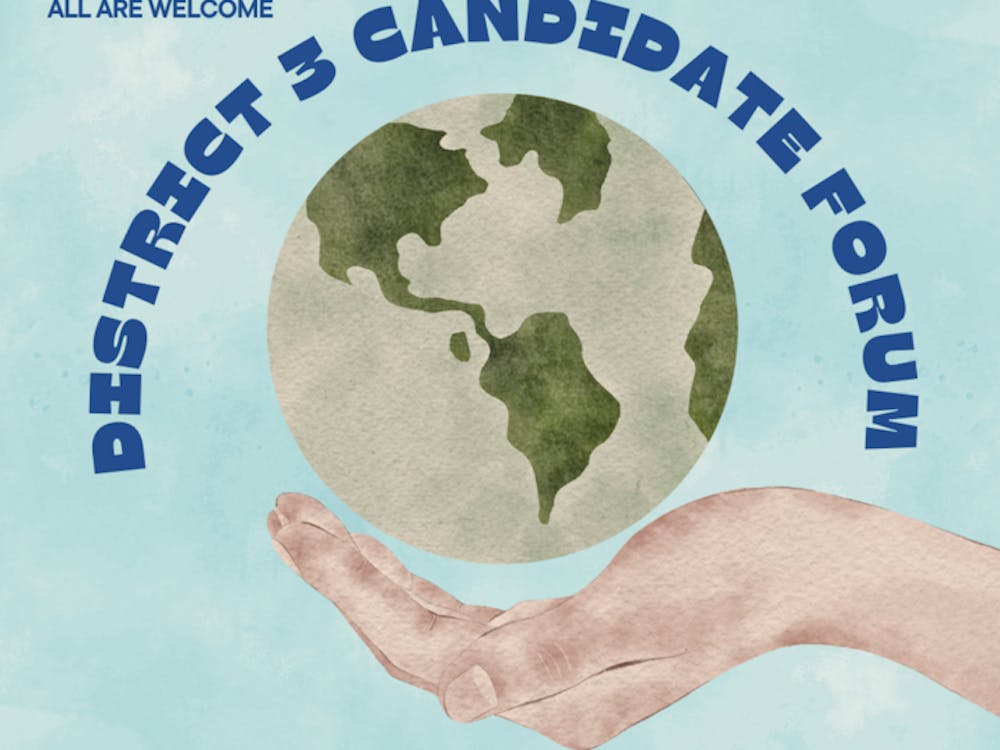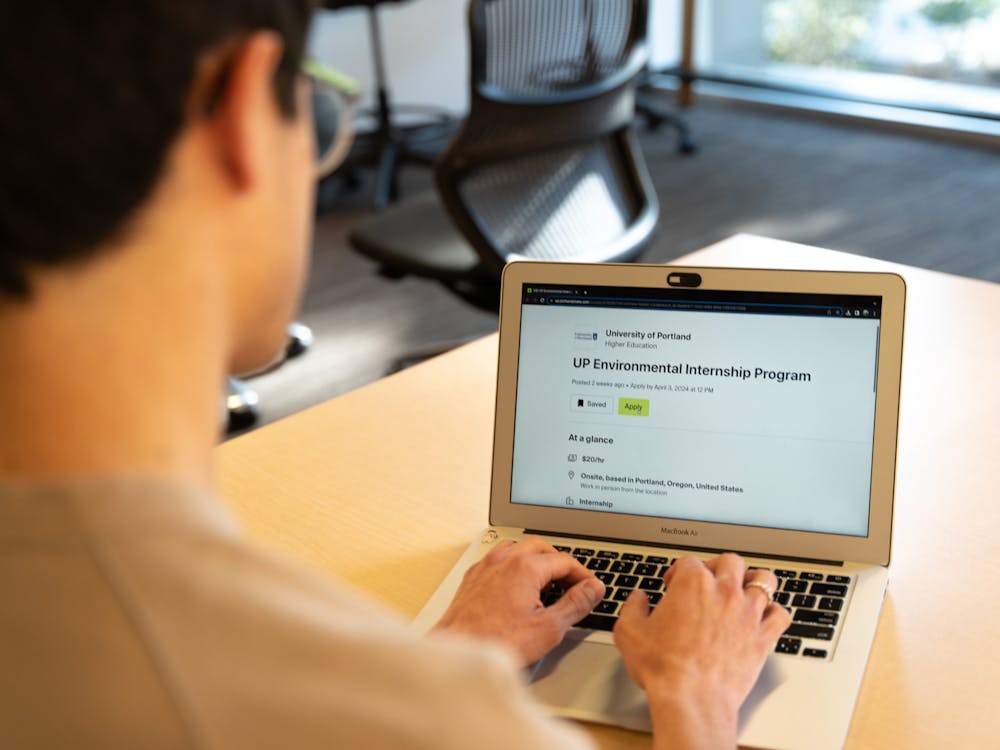The March 5 expiration date President Trump slapped on Deferred Action for Childhood Arrivals, or DACA, is now less than five months away. A panel discussion on DACA and related immigration issues was held Monday night in St. Mary’s. The event, which garnered a diverse crowd of more than 80, aimed to educate, address the issues head on, and encourage community members to take action for those affected by the rescindment of DACA.
Folks gathered together on Oregon’s third recognized Indigenous People’s Day, formerly known as Columbus Day, to discuss the Obama-era immigration policy, DACA, which was rescinded by the Trump administration on Sept. 5, pending a six-month period for Congress to intervene with a solution.
The conversation came only one day after the White House sent a ‘wish-list’ to Congress, which has been tasked with developing a new policy, including requests related to the construction of a wall along the Southern border of the United States and increased volume of immigration officer patrol, according to the New York Times.

The event was hosted by the Moreau Center, Diversity and Inclusion Programs, and student organization Movimiento Estudiantil Chicano de Aztlán, or MEChA.
Although ASUP was not directly affiliated with the event, a group of senators have issued a statement of solidarity with those affected by the rescindment of DACA, urging their fellow students to reach out to their representatives for comprehensive immigration reform.
Panelists advocated for what is called a clean DREAM (Development, Relief and Education for Alien Minors) Act, or comprehensive immigration reform that would offer protection and eliminate the criminalization of parents who brought their children to the U.S. without documentation, expand protection beyond those who choose the route of higher education, and would offer a pathway to citizenship for undocumented immigrants.
There are more than 800,000 young people in the U.S. who are directly affected by the rescindment of DACA, 25,000 in the state of Oregon, and some, including panelist Efrain Venegas Ramirez, at the University of Portland.
In addition to Venegas Ramirez, a senior physics and philosophy double major, panelists included Yuridia Hernandez Osorio, a UP alumna and coordinator for Diversity and Inclusion Programs, Alejandro Santana, professor of philosophy, and Rene Sanchez, professor of theology.
Hernandez Osorio was a student at UP and the president of MEChA, when DACA was first introduced as an executive action by the Obama Administration in 2012. Upon hearing the news, Hernandez Osorio and Santana, still an adviser to MEChA, helped undocumented students sift through binders full of papers to apply for the program.

Now, she said, “This is the first year, to my knowledge, that this is an all brown panel that is talking about DACA. It’s important that brown folks are talking about issues that impact our lives and our community and our family.”
Although it was her intention to educate the community, Hernandez Osorio emphasized that the panel event wasn’t a comprehensive education on immigration issues.
“You’re not gonna walk out experts claiming to know everything about DACA. It changes everyday as you can see in the news.”
Sanchez, whose area of expertise is theology, spoke to the crowd about the ways the “prophetic tradition” of the Catholic Church differ from that of the United States government.
“The language of the prophetic tradition begins with love and honors diversity,” Sanchez said. “It’s really important that we not let ourselves go down the road of numbness.”
Sanchez emphasized the importance of compassion, stepping in and being a voice for marginalized communities in times of injustice. Right now, he said, is a time to step in for the undocumented population.

“Justice can never be about just us, or it fails miserably,” Sanchez said.
Venegas Ramirez, who shared his story of being undocumented recently in The Beacon and during the panel event, echoed this sentiment.
“I’m not asking you to feel sorry for us,” he said. “I’m asking you to fight for us.”
Venegas Ramirez encouraged the crowd to think about why people cross the border without documentation in the first place.
“When people decide to cross the border illegally, they know what the risks are,” Venegas Ramirez explained. “They have done so because they had no other option. Their lives at home are unbearable.”
He said his parents realized they had no other option when he was only four years old. Since immigrating to the United States as a child, he has never been back to Mexico, and said he has only three memories of the country he was born in.
“When you hear stories in the news of people saying this is the only country they know, this really is the only country they know,” Venegas Ramirez said. “This is my home.”
His DACA permit expires next October, but even then, Venegas Ramirez said his time on The Bluff could run out come DACA’s pending expiration.
“That countdown is very real to me.”

Efrain Venegas Ramirez, one of the 800,000 DACA beneficiaries, shares his story in hopes of reminding people that immigration is a human issue, and starting a dialogue on The Bluff.
Venegas Ramirez went on the Moreau Center’s border immersion trip two years ago, during which he visited the Arizona border town of Nogales. It was scary, he said, to see the separation.
“I speak Spanish but that's not gonna help much over there. I wouldn’t have my degree. I would have to start my life all over in a new country,” Venegas Ramirez said. “I really do want to be here. I want to stay here in the United States.”










